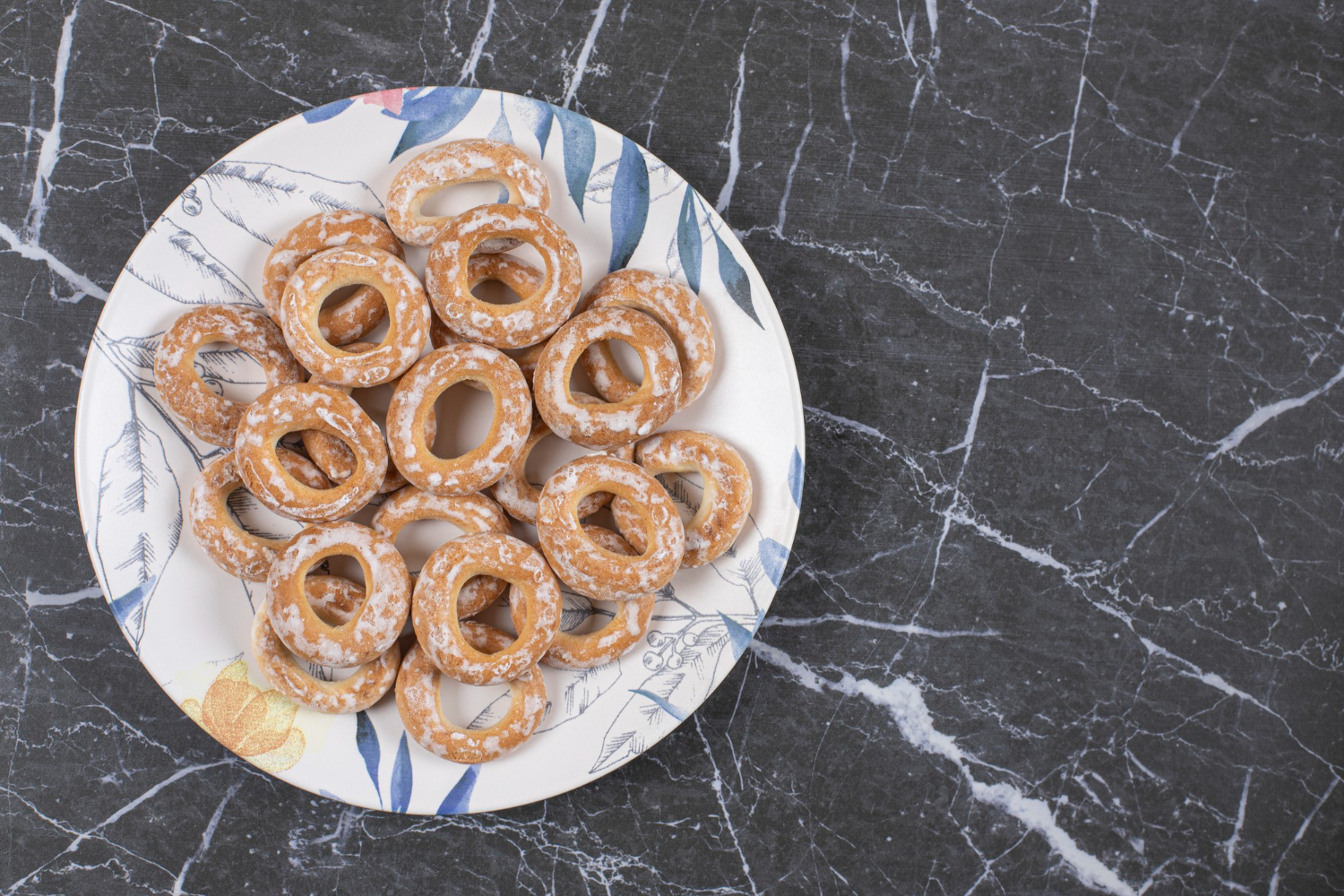Large-grained, coarse white salt with no additions is known as pretzel salt. The grains in this salty are pretty flat and rectangular. This salt variant can be used in course rubs for meat curing, salt crusts for fish, pickling, and zucchini fritters.
Pretzel salt is less refined, as it contains table salt’s typical mineral components. This salt has a unique form, enabling it to better stick to baked foods like breadsticks, biscuits, and salted rolls. In addition, pretzel salts have non-melting properties, which is essential since it maintains texture and taste to your baked product.
If you do not have pretzel salt, you can make a replacement by using and combining other salt variants. Kosher salt and pretzel salt can be used interchangeably as both have a similar appearance because of their granular consistency. Moreover, these salts are identical since they’re both completely additive-free.
Is Pretzel Salt and Kosher Salt the Same Thing?
It has already been stated that pretzel salt is a coarse-grained salt. People who love the salty taste of pretzels are in love with the salt’s consistency. They include it in their traditional meals, even if it is only in a small way. This is since it is less refined than typical table salt, with more minerals in it.
Kosher salt, a pretzel salt replacement that is extremely popular, has numerous similarities to pretzel salt. They’re all about the same. Although kosher salt and pretzel salt may seem identical, they are actually quite distinct.
Both kosher salt and pretzel salt are available in granular varieties. In addition, kosher salt has the same benefits; it makes your meal taste better by making it more flavorful. Finally, salt that follows kosher guidelines doesn’t have any added ingredients. In other words, it’s not difficult to observe the close resemblance to pretzel salt.
Kosher salt is made from large crystals and is a coarse-grained variety of salt. When it comes to shape, kosher salt can go in pyramids and flat structures because its form is mainly determined by the evaporation process.
As is the case with koshering meat, kosher salt usually is an excellent choice. Additionally, it can be used for brining, marinating, and canning. Although kosher salt is good for rimming margaritas, it isn’t great for baking. It doesn’t dissolve entirely unless other components are wet enough to help.
Your control over the salt measurement and application quantities will be significantly improved because you can simply pick the kosher salt up between your fingertips.
Why Is Pretzel Salt Used?
The large-grained salt used for pretzels is known as pretzel salt. The consistency of its crystals is regular, and it is an entirely natural salt that has no additions. Thus, because pretzel salt is flat and rectangular, it lends itself to baked goods, as pretzels already do.
People also use pretzel salt in their traditional meals, even if it is only in a small way. This is because it is less refined than typical table salt, with more minerals in it. Also, the pretzel salt can be used to cure a variety of meats, fish with a salt crust, and other dishes.
One can add pretzel salt to any dish and savor the saltiness that the pretzel’s staple. However, it is crucial to avoid letting it become too dominant and therefore ruin the meal. People try to reinvent the pretzel salt wheel for several reasons:
- Pretzel salts can be unavailable to certain areas or regions. The salt’s non-availability pushes the boundaries of using something different, like salt or a mix of spices.
- Due to their large particle size, pretzel salts can be difficult to dissolve. Pretzel salts may not be suitable for some meals. In some instances, you’ll discover that a substitute is a good solution.
- Just like other salt variants, excess intake of pretzel salts can be detrimental to health. It may raise several medical problems that can affect your cardiovascular and urinary health. Other nutritious ingredients may be included in your recipe.
Is Pretzel Salt Bad?
Around the world, people enjoy eating pretzels as a snack. For those who haven’t seen a pretzel—they’re a baked bread twisted into a knot that’s loved for its salty flavor and distinct crunch. However, most snack foods, such as chips, are higher in calories than pretzels. Yet, many individuals are uncertain about whether pretzels are a good choice.
Baked treats produced from wheat flour, such as pretzels, are generally popular in the United States. While there are many diverse varieties, they all typically resemble a knotted tangle. The two different types of pretzels are soft and hard, and both have a lustrous, brown color.
Soft pretzels are a specific size and possess a chewiness. As a result, people frequently eat them with sauce. These bitesize treats, on the other hand, are crunchy and may be consumed by the fistful. Convenience stores, such as grocery stores, sell them; thus, they are simple to buy.
The healthiness of pretzels is dubious. Their refined flour is more easily absorbed into the bloodstream, raising the glycemic index. That will lead to a surge of energy, then a precipitous drop.
Salty pretzels would be a wrong choice for persons who are sensitive to salt. Though pretzels have a pleasant taste, they are not nutritious. They have high salt levels and contain simple carbohydrates, both of which cause blood sugar to rise quickly.
But if you do choose to eat them, it’s fine on occasion.
Salted pretzels shouldn’t be your go-to snack for their health benefits alone. In case you have digestion troubles, pretzels are simple to bear because they have almost no fiber. If you’ve been engaged in a long and arduous run or bike ride, a pretzel is an excellent way to replenish lost salt and offer rapid energy.

